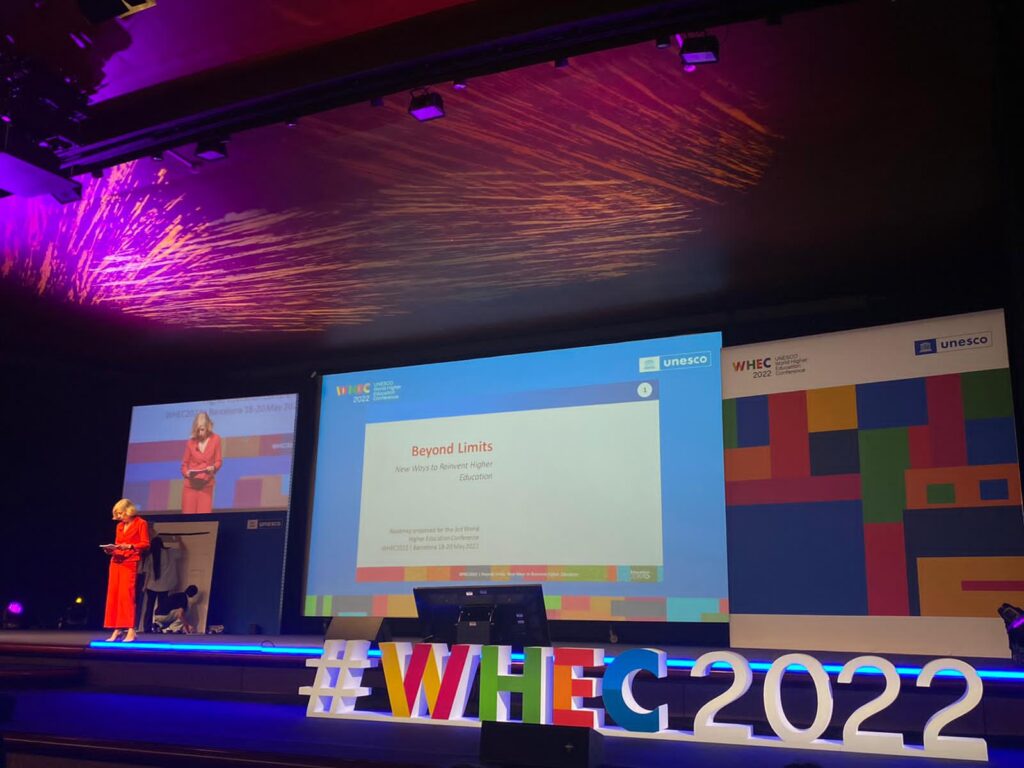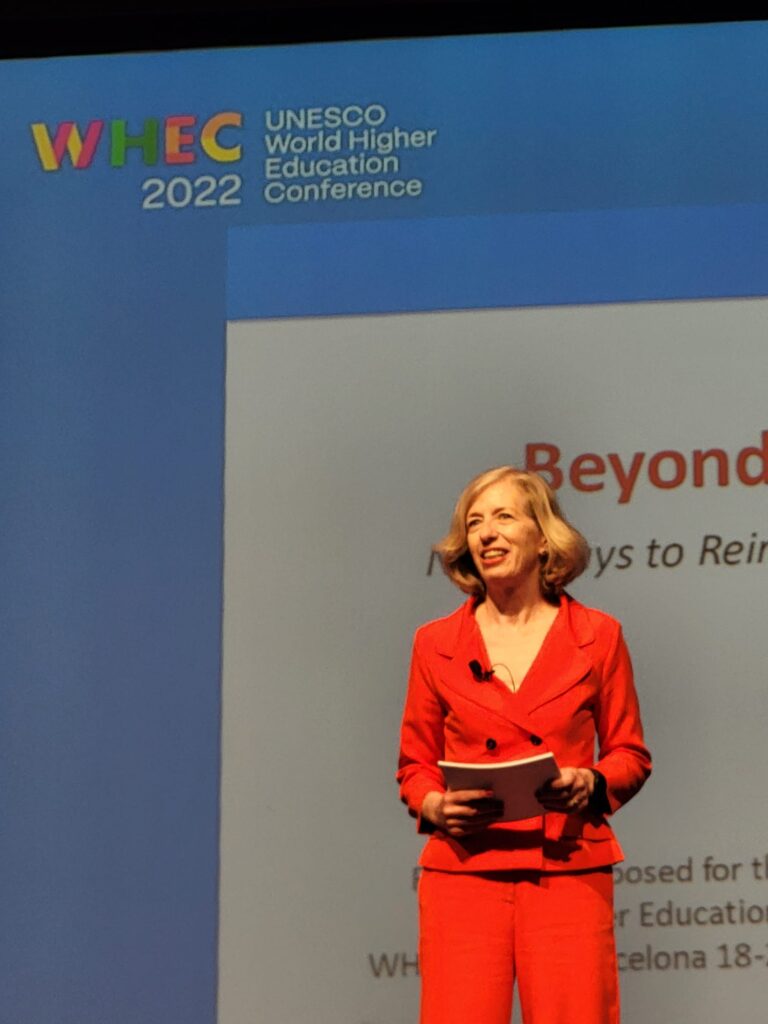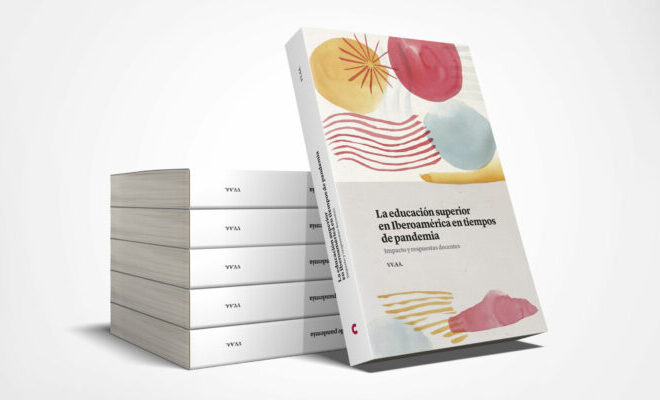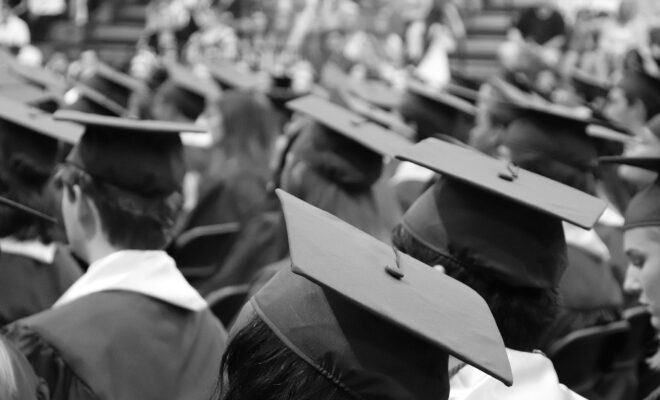WHEC2022 set a roadmap for higher education for the next decade
- The “living document” is a key to reimagining our futures together with education at the core.
- Calls for co-creating more open, inclusive, equitable and collaborative systems.
- HE must deal with and respond to global challenges guided by principles that define it as a public good and an integral part of the right to education.

UNESCO presented a roadmap for Higher Education for the next decade in the closing of the three-day World Higher Education Conference (WHEC2022), which took place in Barcelona, Spain. It results from a global conversation between 1800 delegates from 130 countries. The roadmap is open for improvement and contributions are encouraged. The goal is to have a final version ready in time for the upcoming SDG4 coordination meeting in November, after a wide consultative process.
Stefania Giannini, Assistant Director-General for Education at UNESCO explained the concept of this roadmap as a living document that generates a vision: “It’s an invitation to continue exchanging and shaping ideas, adapting them to different contexts, guided by shared ethical principles. It sets signposts for co-creating more open, inclusive, equitable and collaborative higher education systems. Such a transformation takes a shift in mindset: privileges cooperation over competition; diversity over uniformity; flexible learning pathways over traditionally structured ones; openness over more elitist viewpoints.”
This roadmap encourages higher education systems to build bridges and promote partnerships that put sustainability at the core and use technology inclusively and creatively.
The document is nourished by extensive research and previous wide consultation in diverse areas, guided by the 17 goals of the 2030 Agenda of Sustainable Development and the Futures of Education initiative.
Higher education must deal with global challenges (pandemics, climate crisis, political polarization, increasing inequalities) and its dynamics: massive expansion, increasing mobility, funding, and the role of technology.
Giannini mentioned that the change is urgent to strengthen the potential impact of a connected, collaborative, cooperative, and agile higher education. A transformation guided by principles: HE a public good and an integral part of the right to education.
As a social justice imperative, higher education needs to promote greater inclusion and diversity. It also requires academic freedom and to develop creative skills to address global challenges to serve society.
Giannini applauded Sweden’s ratification of the Global Convention on the Recognition of Qualifications in Higher Education and appealed to Member States to join this instrument that supports quality, inclusion and cooperation.
“This is a key to reimagining our futures together with education at the core. I call on the large family of all higher education stakeholders here today to stay on board… Ultimately this is about strengthening the conditions for peace that is under severe threat today”, said Giannini in the closing event of the WHEC2022.

Inside out the WHEC2022
120 roundtables, side events and workshops,
86 HED talks
5 youth-led activities
Launching of important reports by the Expert Group on Universities and the 2030 Agenda, GUNI, UNESCO IESALC
Some responsibilities toward learners
-Fulfill the right to higher education and consider it a public good
-Shift mindset: include and empower, not categorize or discriminate
-Open higher education to society: connecting, integrating different systems of knowledge in a circular vision –from local to global and back
-Foster a new ecology of learning: lifelong and collaborative, placing science and technology at the service of human and planetary well-being.
Link to the Roadmap in EN
RELATED ITEMS







